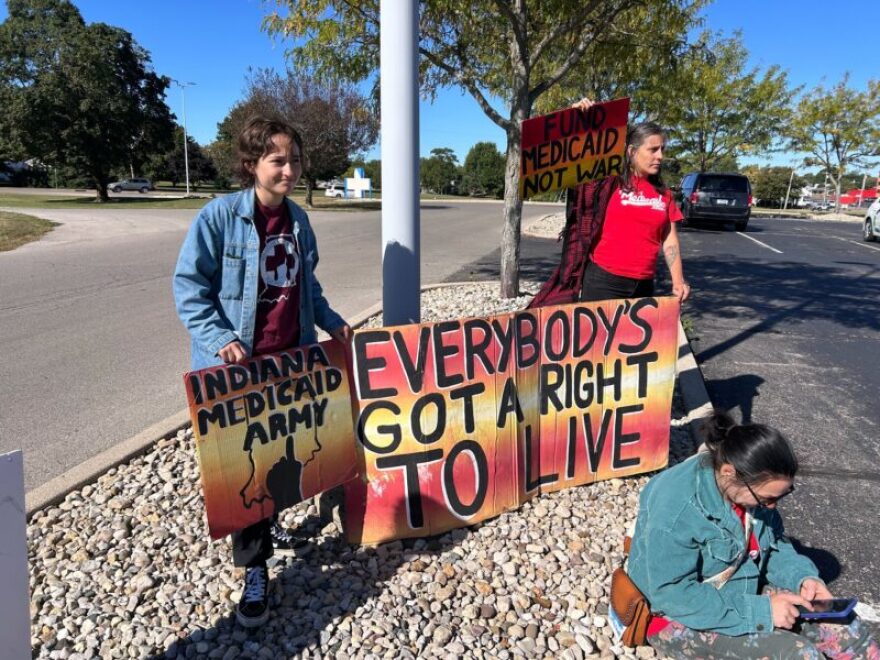The “Motorcade for Medicaid” made four stops on Saturday, including in Winchester, Portland, and Decatur – cities with three of Indiana’s 12 at-risk rural hospitals. The goal of the motorcade was to demonstrate the possible 100-mile trip people could be forced to make to urban hospitals if rural hospitals have to shut down.
John Wessel McCoy with the Nonviolent Medicaid Army is one of the event’s organizers. He says that distance might cost people their lives.
“Take somebody in [Randolph] County, right? Goes into cardiac arrest or a stabbing or a stroke, you know, the distance they have to travel is going to be the difference between life and death. Reed is the next closest hospital down the road [in Richmond]. So, it would take you about 30-35 minutes to get down there.”
Ed Rhoades took part in the demonstration. He says he’s afraid the cuts to Medicaid will end up hurting people who have private insurance, not just those without coverage.
“I just wish more people would stand up and speak out for healthcare,” said Rhoades. “Because, in my own opinion, I feel like it’s going to be gone for the average person. Even for people that have their own private healthcare plans. I can see them skyrocket over something like this. So we’re all vulnerable.”
Read More: Expert: Collaboration is vital part of disaster response for rural hospitals

According to data from the Kaiser Family Foundation, over 1.8 million children and adults are enrolled in Indiana’s Medicaid, known as the Healthy Indiana Plan (HIP) and Indiana Children’s Health Insurance Program (CHIP) and and approximately 75 percent of its funding comes from the federal government.
READ MORE: Medicaid members in HIP program say federal, state policy changes put their lives at risk
To be considered at-risk of closing, a hospital needs to be in the top 10 percent Medicaid payer mix of rural hospitals across the country, or have experienced three consecutive years where expenses exceed profits. An analysis from the University of North Carolina shows there are 300 such hospitals across the US.
Thomas Ouellette is an IPR reporter and producer. Contact him at thomas.ouellette@bsu.edu








